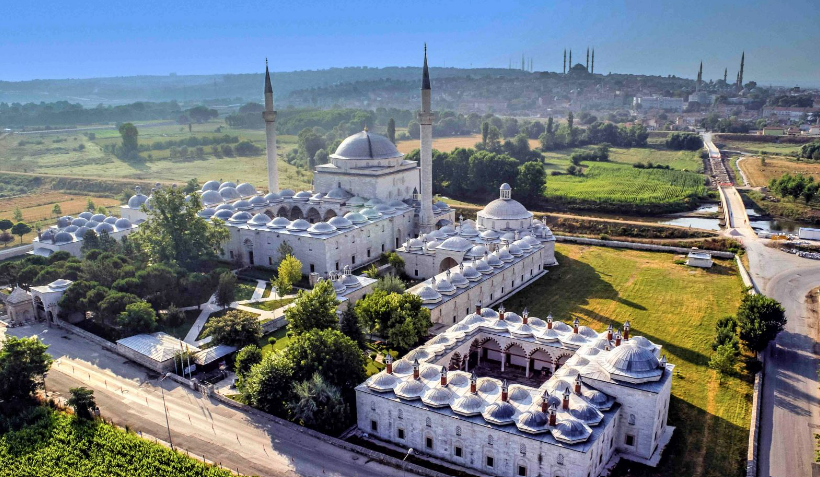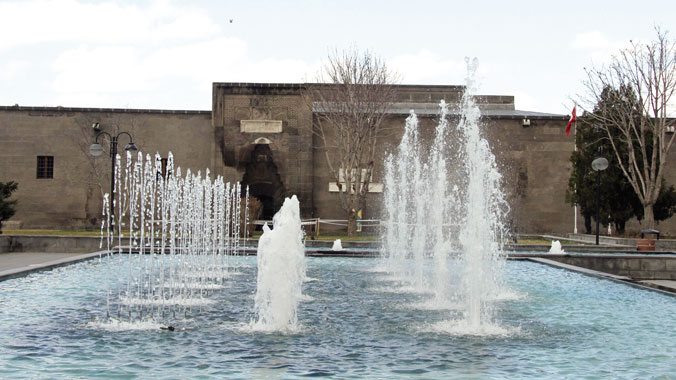The US psychiatrist, who works on Islamic sciences and psychology, Dr. Rania Awaad, "Psychology studies are part of the heritage of Muslims. Islamic civilization had a beautiful healing heritage and you see it with healing houses." said.
Stanford University School of Medicine psychiatrist and director of the Stanford Muslims and Mental Health Laboratory, Dr. Rania Awaad examined the healing houses from the Ottoman period in Konya, Kayseri, Sivas, Bursa, Amasya and Ankara, especially in Istanbul.
Awaad, who gave information about his work to the AA correspondent, said that she also received training on Islamic law and that she was working on the concept of Darüşşifa in Islamic civilization.

"Healing houses also appealed to all human senses."
Pointing out that healing houses are institutions based on Islamic tradition, Awaad said, "It would not be enough to consider them only as hospitals of the period. Because healing houses also appealed to all human senses, such as the sense of sight with the beauty of nature, the beautiful sound of water and the sound of birds and the sense of hearing. They used to focus on healing the soul, something that is lacking in modern psychology today." she said.

Stating that healing houses were generally prevalent during the Seljuk and Ottoman periods throughout history, Awaad continued as follows:
“Many of them are still standing today. I am actually writing a book on this subject, so I came to Turkey to study them on the spot. The aim of the book is to examine what the concept that inspired these healing institutions was and how they cured mental illness in particular. Because in pre-Islamic civilizational hospitals, people with mental illness were not cared for, but much later, because the principles about the mind or the protection of the mind were given importance, great importance was given to the treatment of the sick."

"I was really surprised at how broad the foundation culture was"
Dr. Rania Awaad, referring to her visit to hospitals in Turkey as part of her book project, said, "I went to Adana last year, it was a wonderful experience. It was a visit that really changed my research. I realized that I needed to see as many healing houses as possible, and this year I went to Bursa, Kayseri, Sivas and We went to Amasya. Now we are visiting the healing houses in Haseki, Süleymaniye and Üsküdar in Istanbul." she explained.

Stating that she came across many details that surprised him during her research, Awaad said:
"I was really surprised at how extensive the foundation culture was in those years. All the documents are there, all the details are included, from the reason why it was built, to which sultan it was built in memory or with its budget. What was really interesting was their belief in healing the sick people in the society. What they ate, what drugs they took, but also that they were in a clean environment with fresh air, and they aimed to completely heal their souls. There are such detailed documents that it was even stated how much the doctors would be paid."
Noting that healing houses were designed with an integrative understanding of healing, Awaad said, "For example, we saw that water therapy was very common. However, they paid attention to the use of sound therapy, maqams or tones. If someone was very depressed, a tone would be played that lifted them up, or if someone was very anxious, a calming tone would be played. "When we came to Turkey, we realized that the healing houses actually continued to be used as hospitals until the early 1900s. In previous research, it was said that they were no longer used, neglected and replaced by modern medicine. However, we saw that they are still used in parallel with modern medicine." made her assessment.

"Psychology studies are part of the heritage of Muslims"
Stating that the history of psychology in the academy was written with a completely Eurocentric perspective, Dr. Awaad said:
“It is said that much of psychology began in Europe and that the discoveries of mental illness were made by Europeans. However, some of my research and publications show that the writings of names like Abu Zayd al-Belkhi, who have studies on obsessive compulsive disorder or phobia, date back a thousand years before Europeans. It's the 9th century, not the 19th century. That's very important. Because you can understand that there was an interest in understanding how human psychology worked in those years as well."
Awaad underlined that he wanted to show that psychology studies can be done from an Islamic point of view, "Many Muslims in the USA today feel disconnected from psychology. They call it Western psychology or say 'this is not for us', but in fact, studies show that Muslims do this too. "Islamic civilization had a beautiful legacy of healing, and you see it with healing houses. So that's where my interest comes from changing the narrative about psychology and at the same time making it understandable for Muslims." added her words.
Translated by Ekrem Başcı
AA